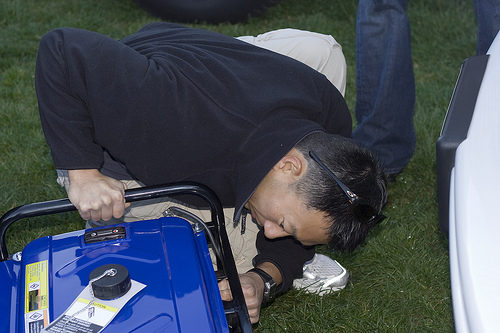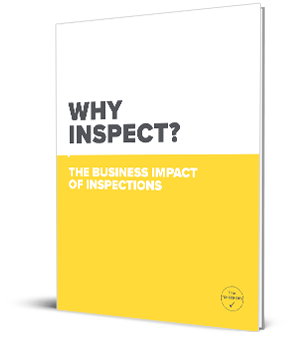Old Man Winter hasn’t been in a friendly mood this year. All over North America, it’s been an unusually bitter winter, filled with powerful storms that have knocked out power.
 When the power goes out, there’s nothing better to have than a backup generator. If a big storm brings down power lines, you’ll be thankful for every dollar you spent on it.
When the power goes out, there’s nothing better to have than a backup generator. If a big storm brings down power lines, you’ll be thankful for every dollar you spent on it.
If it works.
Generators are one of those things that are easy to buy and then forget about (“I’ve got one; I’m all set if the power goes out”) . But like any piece of equipment, generators can develop problems. Winter’s not over yet—are you sure your generator will work if you need it?
I recommend not only visually checking it out, but also turning it on.
Having What You Need When You Need It Most
Inspecting generators in anticipation of winter storms is just one example of the right mindset to have when it comes to inspecting equipment that has a critical function. Even if you only need it to work on occasion—as with a backup generator—when you do need it to work, you really need it to work.
Lots of equipment is like this—and in many cases, lives are at stake. You don’t need fire alarms, fire extinguishers, defibrillators, etc. very often, but if they aren’t working when you do, the consequences can be fatal.
When the equipment is crucial, you can’t afford to assume it will work. You need to inspect it regularly.
I’m a huge proponent of using checklists to do this inspecting. When you’re making sure your generator works, it helps to have a well-organized, comprehensive list of items to check on a generator. The same goes with any piece of equipment, and that’s why The Checker offers hundreds of equipment-specific inspection checklists.
I think it’s also probably a good idea—in your home and in your business—to create a “master checklist” of critical equipment that’s easy to forget about until you need it. Schedule your inspections of this equipment so you don’t forget to do them.
And definitely inspect any equipment as soon as you know you’ll have a higher-than-normal likelihood of needing it. When the weather reports are calling for another round of the Polar Vortex, that’s when to check that generator!
Takeaway Point
Don’t fall into the trap of neglecting to inspect critical equipment because you rarely use it—when you do need it, inspections give you assurance that it will work for you.
Image courtesy of JMR Photography, Creative Commons.











